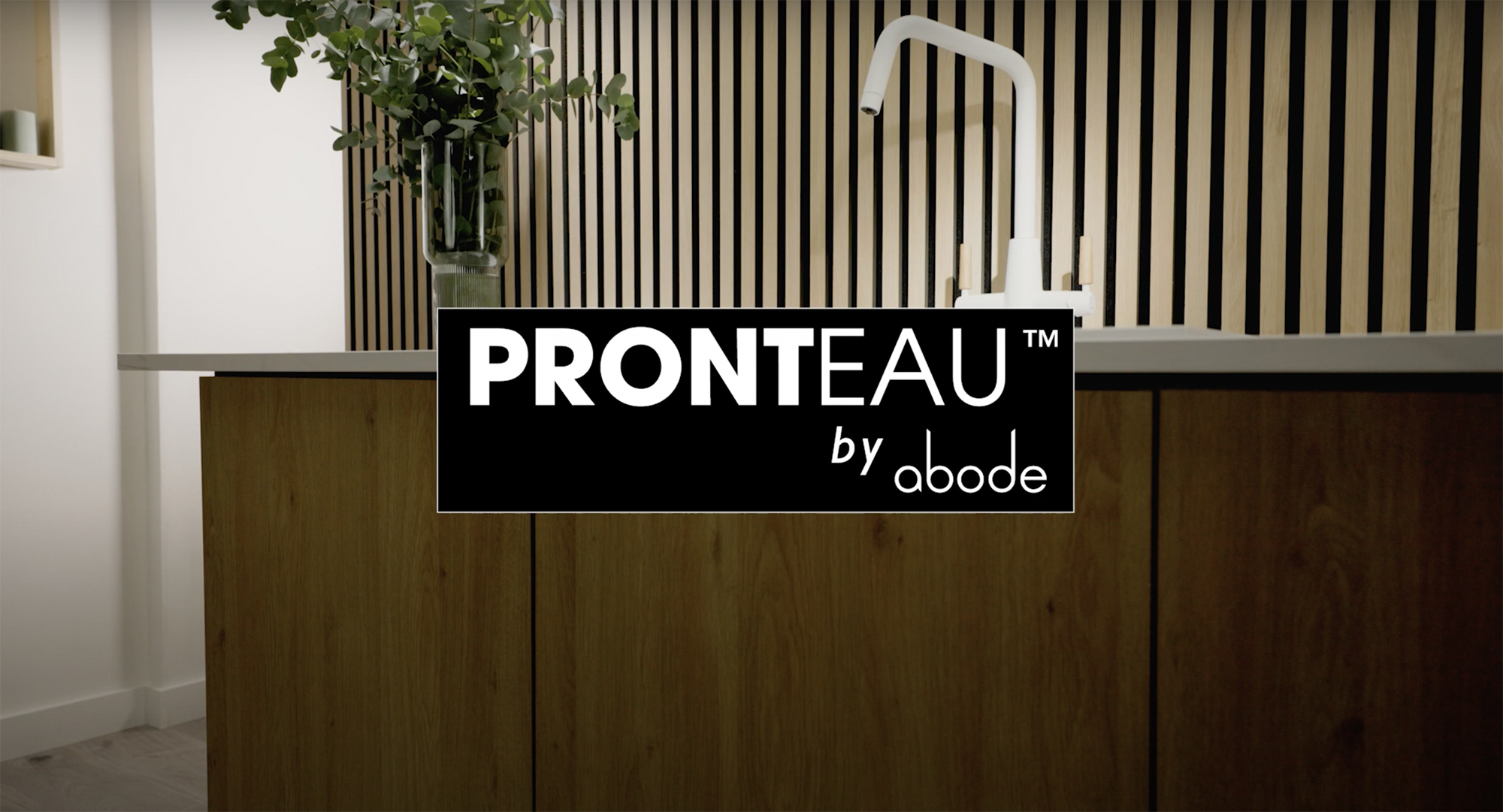Directors of Hill’s Panel Products (HPP) say the UK’s on-off recession and continued uncertainty surrounding the Ukraine-Russia conflict is creating a wait-and-see climate in the KBB industry
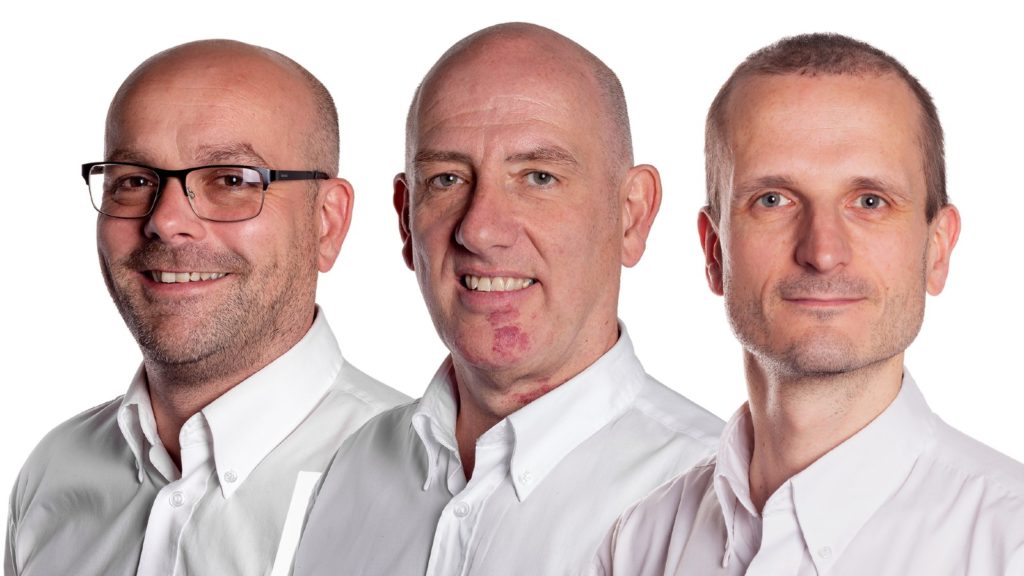
Pictured left to right: sales director Gareth Evans, purchasing director Alan Bolton, plus marketing and business development manager Dan Mounsey
Marketing and business development manager Dan Mounsey, purchasing director Alan Bolton, and sales director Gareth Evans, who between them have almost 75 years’ KBB industry experience, agree 2023’s first quarter will be an indicator for how the rest of the year might pan out.
But that is not stopping the Oldham-based business adopting a positive attitude to the months’ ahead.
Sponsored Video
Alan Bolton comments: “Just because there is uncertainty, we won’t be trying to hunker down. We’ll just get out there and try and build the business.
“It may only result in us standing still, but when the economy does improve, we’ll be in a strong position.”
The long-serving trio at the Oldham-based manufacturer and supplier of board, doors and fittings for fitted kitchens and bedrooms, commented on the state of the KBB industry, and how the war in the Ukraine had impacted, but not as severely as they first thought.
All eyes on Q1
Following Brexit and the Covid-19 pandemic, HPP’s hopes for a smooth and strong trading year in 2022 quickly evaporated when Russia invaded Ukraine last February.
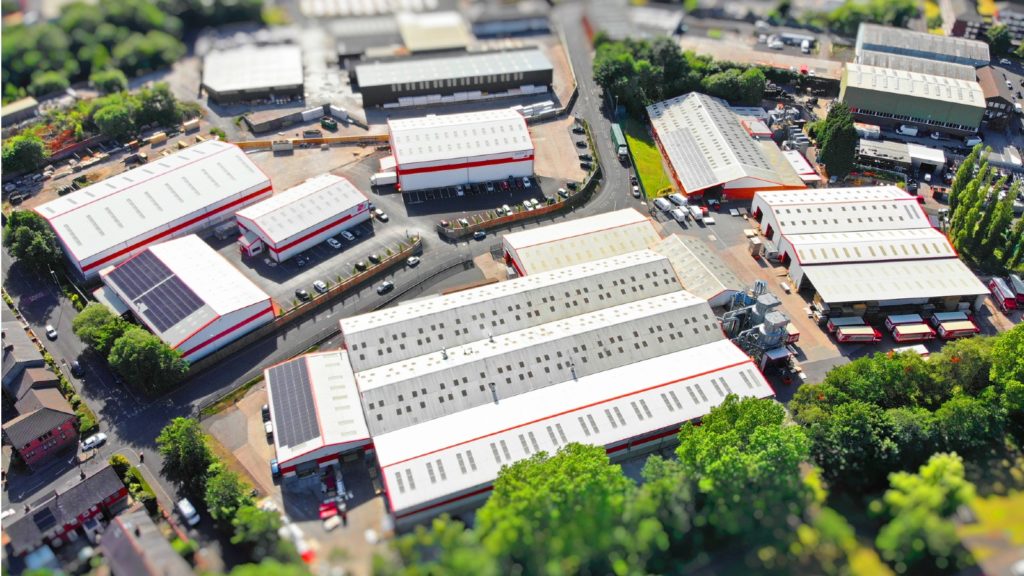
The impact was instant, but the reverberations have not been as serious as first feared.
Alan Bolton explains: “As soon as the invasion happened, the impacts on fuel and energy were immediate and our chipboard suppliers put their prices up straight away.
“We didn’t realise at the time, but Russia supplies a significant percentage of the world’s oil derivative products that go into the chemicals used in the manufacturing of key products for our industry, such as melamine, for example.
“Although our suppliers weren’t buying directly from Russia, the supply chain ended overnight.
“Products became scarce and prices went up by double-digit percentages, as much as 45% was predicted at one time, although that didn’t pan out.”
But while the worst fears did not materialise, there is still uncertainty about what 2023 will bring.
Alan Bolton adds: “We’re seeing several major suppliers saying they need to increase their prices to cover increasing costs, but they don’t want to unbalance the market.
“It is quite precarious at the moment is the general consensus. They’re talking about an increase after the first quarter of this year when they have a better idea of how things are.”
Dan Mounsey continues: “That is a pattern we’re seeing with all sorts of businesses we deal with. They say they will see what happens in the first quarter to re-assess before taking any decisions.
“The first quarter is looking fairly good based on current order books, but we’ll have to wait and see what happens after that.”
Emerging markets
Vietnam and Turkey are possible alternatives for sourcing materials and products as global factors such as conflict, COVID and changing labour markets impact prices and supply chains.
Vietnam is emerging as a competitor to China due to its cheaper labour costs and Chinese supply chain uncertainties created by ongoing COVID-related issues, says Dan Mounsey.
Alan Bolton says Turkey is a potential market for future consideration, adding: “This was before the earthquake, but Turkey was being mentioned more and more in the circle of people I chat to – suppliers, fellow distributors and distributors.
“It seems to be a place that is going to be able to offer cost-effective, good quality products and that could range from melamine faced chipboard and mdf-related products.
“We do have relationships with some business over there that we’ve built up over the years, but as yet, it’s never resulted in us doing any business with them.
“I think rather than going to China when we refresh our handle range in the next year, we’ll look at Turkey if that’s still possible.
“We have to have a competitive mix of products in our handle range, and it could be right for a certain price bracket.”
Challenging times for recruitment
Despite the economic uncertainty, there is still a healthy jobs market for jobseekers and that is resulting in difficulties finding good recruits for the business and the wider industry.
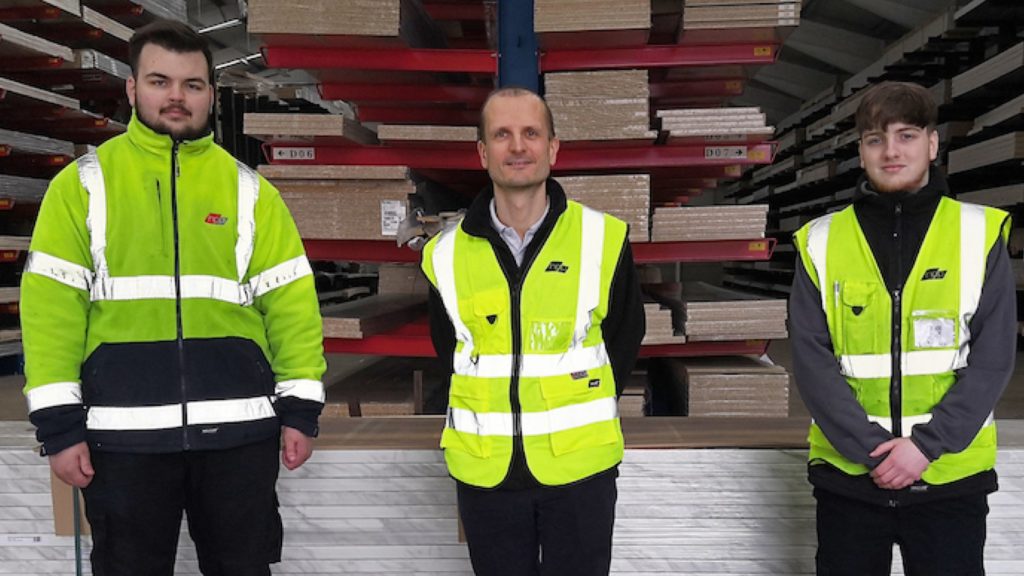
HPP has taken on apprentices to solve the skills gap in recruitment
Dan Mounsey: “It’s very challenging, and it shows no signs of easing. That’s not just us, it’s everyone I speak to – even in different sectors, and different parts of the country.
“I think a big part of it is a generational thing, younger people maybe have less of a desire to commit to a company, they see a job as something transient in their life.
“That is becoming more apparent and that is a real challenge for all businesses.”
Gareth Evans explained the company has looked to bring in young people, training them to the company’s specifications: “We’ve gone down the apprenticeship route, we have more apprentices now than we’ve probably ever had.
“There are good people out there, you just have to work harder to find them and that’s what we are committed to doing.”
HPP has just taken on two new apprentices, while a third has completed her qualifications.
And the company has been lauded by the principal and CEO of a local college who began her career as an accountant with an apprenticeship at HPP more than 25 years ago.
Future-proofing the business
The £1m upgrade of HPP’s biomass heating system to install two new, more powerful and efficient boilers, and associated extractors, saw the system fully operational in autumn 2022.
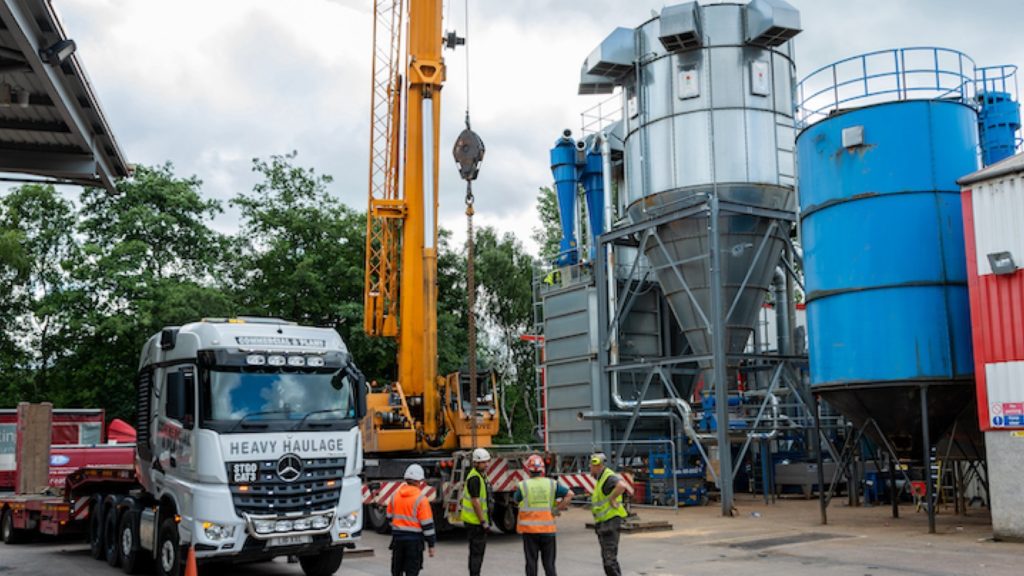
HPP upgrades biomass boiler
It is expected to pay for itself in seven to eight years.
However, the company hasn’t stopped there and is continuing to invest with updated ranges, with continued investment in products, staff and IT
Among its ambitions are plans to refresh its stock doors and continued to develop its partnerships with key suppliers such as Egger, Kronospan, Blum and Reginox, with more to be developed.
Gareth Evans says: “We’ll continue to invest, whether that is investing in people, infrastructure, products, or anything, we’ll carry on doing what we’re doing, sticking to the plans that we have.
“When times are tough, we’re all going to be fighting for a smaller slice of the pie, so we have to make sure we are as good as we can be to maintain what we’ve got and even get someone else’s share.”
Buying British? Not always
So does this mean HPP having a greater focus on buying British?
While the directors suggest it’s an admirable objective, there are occasions when businesses have to go abroad to source materials and goods.
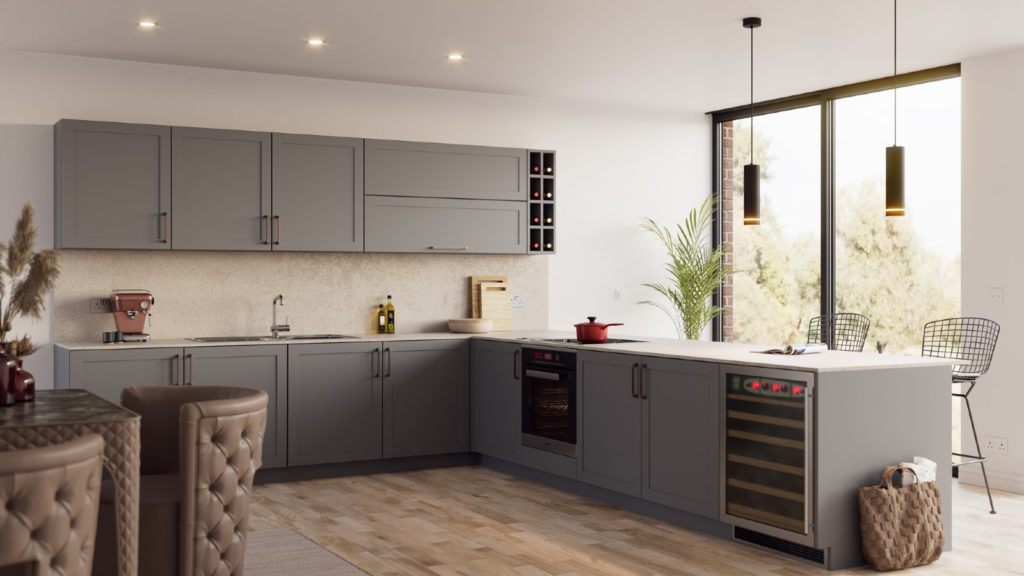
HPP bolsters European-made doors with UK manufactured range
In addition, most of HPP’s machinery is made overseas, so parts have to be sourced from the equipment’s country of origin, which causes delays and places pressure on day-to-day operations.
Gareth Evans explains why the company can’t rely on UK manufacturing alone: “There are certain products you just can’t buy from the UK. A good example is the wirework manufacturers we deal with in Europe.
“There aren’t any British manufactures we can go to for products like that. You look at the Blum products we sell, there are no British alternatives for those.
“The best thing for us about buying British is that Kronospan and Egger are both UK-based manufacturers, and they are two of our largest partners.”
And Alan Bolton adds: “Another caveat to buying British is that if you take doors, which is a big part of our business, if we were to say we were not going to buy from Europe anymore and buy them from a UK-based manufacturer, we’d be buying them off a competitor. That’s a big problem.”
Last year, HPP announced a kitchen door collection imported from Europe was being extended by a new range manufactured in-house, and Dan Mounsey says the hope is to do more manufacturing in-house.
Dan Mounsey concludes: “If we’re going to introduce new ranges, we’d like to do more in-house manufacturing.
“There is less outlay initially doing this, we can react quicker to spikes in the demand, we can be more reactive to new trends in the market place too, so it’s certainly something we’ll look at doing more.”
